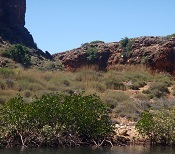 Plant Ecology -
Plant Ecology -
-
study plant ecology and plant communities
-
feel supported whilst you learn
-
work in plant science, environment agencies, agriculture and nature
Course Structure
This course consists of 8 lessons :
- Introductory Ecology
- Plant Communities
- Plants and their Environment
- Plants, Soils and Climate
- Plant Adaptations to Extreme Environments
- Manipulating Plant Environments
- Environmental Conservation
- Environmental Organisations, Assessment and Funding
AIMS FOR LEARNING
- Define the term ecosystem
- Explain the importance of plants as energy producers within ecosystems
- Explain basic ecological principles
- Define the terms open and closed plant communities, semi-natural vegetation, dominant species, climax association.
- Describe the effects of plant association and competition on the succession of plants
- Describe how plant communities respond to environmental stresses.
- Explain how the development, structure and function of an organism depends on the interaction of that organism with its environment
- Describe the effects of a range of abiotic environmental factors on plant growth and development
- Explain the importance of monitoring abiotic environmental factors
- Describe plant modifications to withstand extreme environmental conditions
- Describe the weather and climate in a particular region.
- Relate plant distribution, growth and natural selection to soil, geography, weather and climate.
- State how soil, geography, weather and climate affect the horticulturist’s selection of plants for any specific growing location.
- Evaluate the use of meteorological records in relation to plant growth and development
- Define the terms xerophyte, hydrophyte and halophyte
- Describe the structure and function of xerophytes, hydrophytes and halophytes
- Describe how xerophytes, hydrophytes and halophytes can be utilised in garden or landscape situations
- Describe the significance of xeromorphy in temperate zone plants and its importance in the garden or landscape situation.
- Evaluate the methods by which environmental conditions can be manipulated to improve the growth and development of plants
- State the factors affecting the choice of plants for garden or landscape sites with extreme conditions
- Assess the value of using protective structures to grow plants
- Describe the sources and nature of pollutants and possible effects on plants
- Describe how the environment may be affected by a range of horticultural practices
- Explain how planning, environmental assessment and impact analysis may contribute to the conservation process
- State the major sources of grant aide available to support environmental conservation on horticultural sites
- Review the role of national and international organisations in the conservation of plants and gardens.
Duration: 100 hours
WHAT NEXT?
Register to Study - Go to “It’s Easy to Enrol” box at the top of the page and you can enrol now.
or
Get Advice – Email us at info@acsedu.co.uk OR
Use our FREE COUNSELLING SERVICE to contact a tutor
CLICK TO CONTACT US